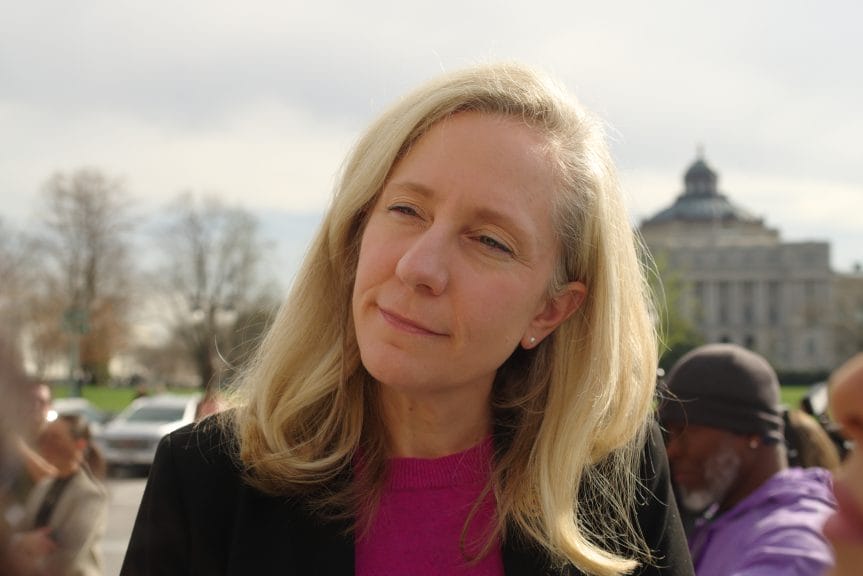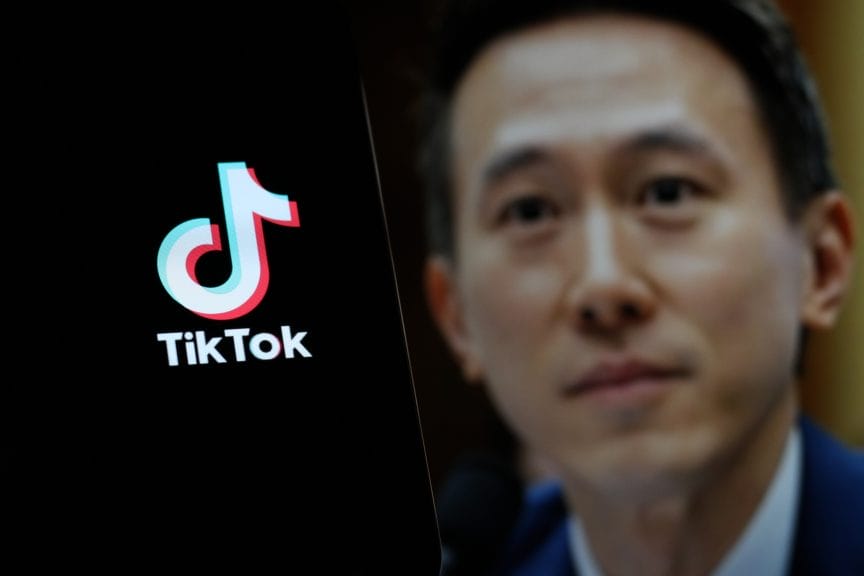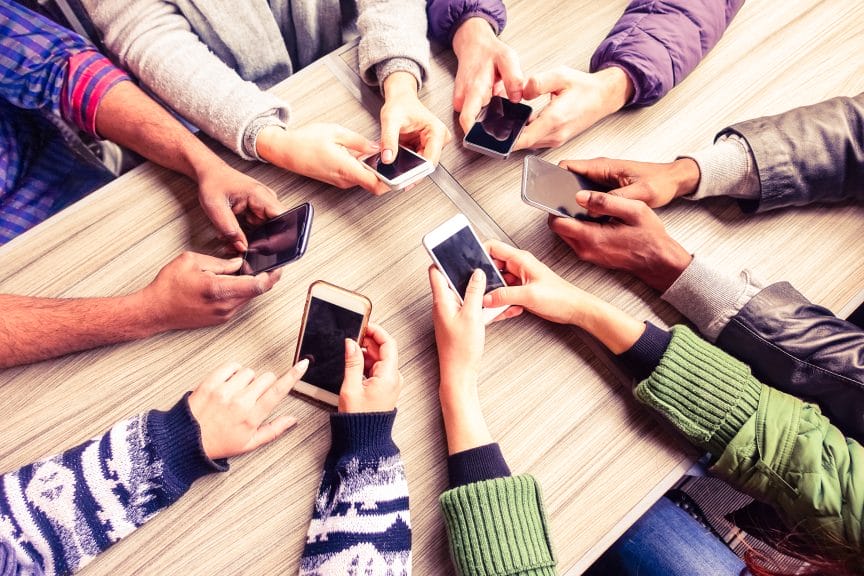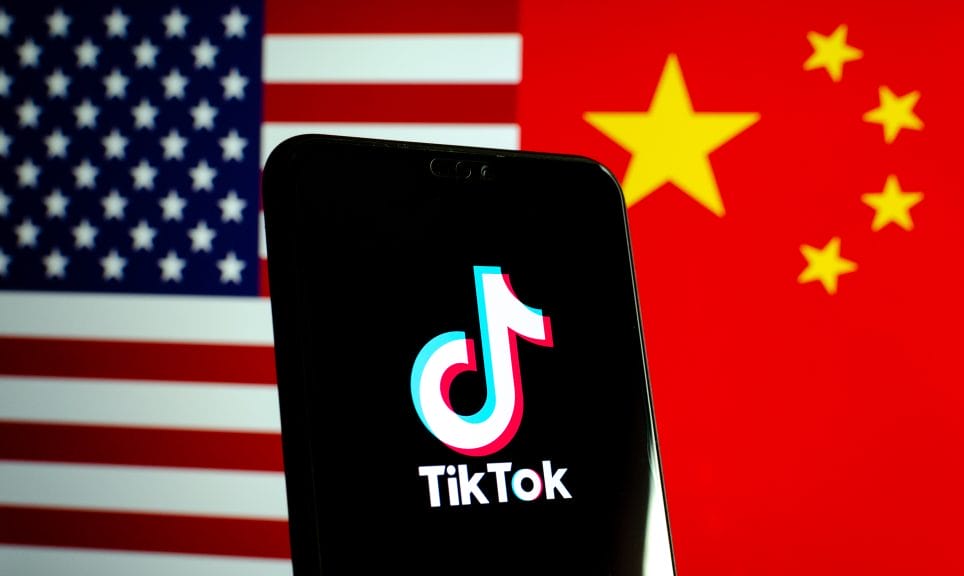On March 13, a bill to ban TikTok in the U.S. passed through the House with approval from the overwhelming majority of representatives.
The battle between the U.S. government and ByteDance, TikTok’s parent company, over data privacy is resurfacing in a way that is reminiscent of 2020. This is the second time that TikTok has been threatened with a nationwide ban. Both cases arose following concerns about American data reaching the hands of the Chinese government.
Some representatives say that “ban” is too harsh of a word for this bill. Experts disagree.
If approved by the Senate, the Protecting Americans From Foreign Adversary Controlled Applications Act would give ByteDance 165 days to sell TikTok. The sale must be to any company not controlled by a foreign adversary or TikTok will be banned. On paper, this would allow the app to continue to operate within American borders, hopefully without too many hiccups.

However, selling comes with one major caveat to ByteDance and the CCP–they would lose ownership of their code. TikTok’s revolutionary content-catering algorithm is what made it one of the most popular social media apps in the world.
China had already harshly rejected a similar push by the U.S. to divest or sell the app in 2023. All in all, it’s unlikely that ByteDance would agree to part with such valuable code. Not to mention the tedious and challenging work that’s required to rebuild an app like TikTok from the ground up.
If the Senate approves the Act, then President Biden will too. But it will likely be rejected by ByteDance.
Afterward, it might take some time before TikTok users actually notice any aftereffects.
First, American app stores would remove TikTok from their libraries. As a result, it would no longer be able to push updates out to pre-existing users. Even then, the app would still feel largely the same for awhile. Eventually, it would fall behind on updates and become too slow or buggy.
And what if the bill fails?
It’s also possible that this bill will blow over just like every other attempt to push TikTok into U.S. ownership. In that case, we still might see some changes.
There’s a chance that these rising tensions will push TikTok to invest more time and effort into Project Texas, an initiative that began in 2021 to foster trust between the platform and its American users and critics.
The website dedicated to this initiative, www.usds.tiktok.com, lays out the framework, goals, and accomplishments of Project Texas. There’s an additional page called “Myths vs Facts” that rejects claims that the CCP controls TikTok and ByteDance behind the scenes.

Among other significant changes, TikTok now stores American data only within American sects of the company thanks to Project Texas. However, this doesn’t seem to be of great importance to U.S. lawmakers. According to the website, Project Texas still remains unfinished.
Regardless, there’s no saying exactly what the next steps will look like for ByteDance or the U.S.
Is TikTok a real danger to our data security?
Yes and no.
According to multiple studies, by The Washington Post in 2020 and the Citizen Lab in 2021, there were no findings of suspicious or unusual activity in TikTok’s code that suggested foul play of private user information. TikTok’s data collection is not so different from other social media like Facebook and Snapchat.
So what is the problem?
What this bill aims to counteract is Chinese censorship and influence over everyday Americans. As the 2024 presidential election approaches, there are fears that China can do with TikTok what Russia did with Facebook and sway voter behavior.

Data scientist Anthony Goldbloom investigates how 98.6% of the views on TikToks about the Israel-Hamas war were garnered by TikToks tagged with pro-Palestine sentiments. Compared to Instagram, Goldbloom’s data shows that TikTok has 11.4% more users who align with antisemitic views.
He also finds that TikTok has notably less traffic on posts related to the Uighur Genocide or Hong Kong protests in comparison to Instagram.
This could suggest that TikTok has more censorship at play than ByteDance wants to admit.
Ultimately, Goldbloom argues that these swift motions to ban TikTok are a response to the spike in pro-Palestinian content after the October 7 attacks by Hamas. In online debates, many criticize the U.S. for addressing frivolous social media issues before bigger problems like inflation or war.
But according to Goldbloom’s data, this bill has a role to play in the bigger picture of the 2024 election and in the Israel-Hamas war. Or at least, American public opinion about the war.

Still, TikTok shows users more of what they want and tend to watch. This difference in content could be a coincidental result of the particular user base of each app. When content caters to the individual, it may eventually create an echo chamber.
In short, legislators aren’t worried about individual data leaks and small security breaches. What they do worry about is the power that ByteDance has over their users through such a greedy and effective algorithm.
The fate of this bill could have ramifications for the 2024 elections or add further strain to U.S.-China relations. Until we hear a verdict in the coming weeks, remember that it never hurts to look into those User Agreement contracts we so often skip.














